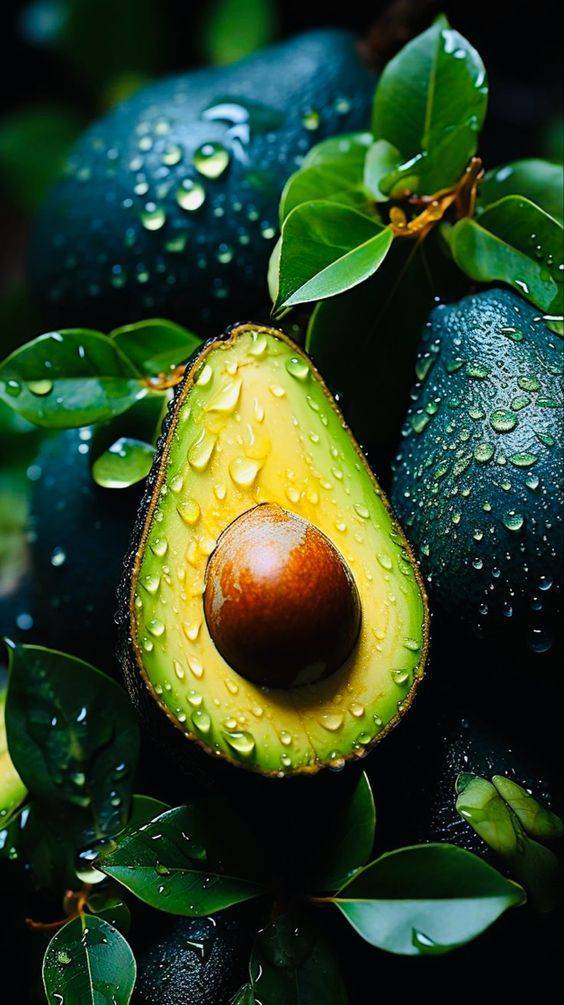A fruit that should have been extinct ten thousand years ago (at least) but has survived to this day.
How did that happen?
Avocado is the fruit of the American persea, an evergreen tree that first appeared around 23 million years ago and has continued to evolve over the millennia thanks to the dispersal of its seeds by the giant herbivores of the Pleistocene era.
The avocado became part of the human diet in Mexico and Peru as early as 9000 years ago. The Aztecs considered it a food symbol of strength and vitality, while the Spanish imported it to Europe and the colonies. In the United States, the avocado was successfully cultivated in California and became a popular fruit merit of marketing initiatives.
A fruit that should have been extinct ten thousand years ago (at least) but has survived to this day.
How did that happen?
Let’s get one thing straight first. Vegans have often been pointed at as the cause of the avocado flourishing, but if we delve into its history, we will realise that things were very different.
Brace yourself.

Around 5,000 BCE, in the fertile lands of south-central Mexico, ancient civilizations such as the Olmecs, Mayans, and Aztecs were cultivating the avocado. Revered for its nutritional value and symbolic significance, the avocado played a central role in Mesoamerican diets and culture, for fertility and love.
Indigenous communities in Mexico and Central America cultivated avocados using traditional farming methods, harnessing the fruit’s versatility in dishes like guacamole and as a nutritious topping.
Their knowledge and appreciation for the avocado laid the foundation for its later spread across continents.
With the arrival of Spanish conquistadors in the Americas, avocados caught European explorers’ attention, bringing the fruit back to Spain. It quickly gained popularity among Spanish nobility, spreading to other parts of Europe, and eventually reaching Asia and Africa through global trade routes.
In the 19th century, the avocado found its way to the shores of California. Initially planted in the state’s southern region, avocado cultivation began to take root, laying the foundation for the commercial industry that would flourish in the coming decades.
Today, avocados are grown in numerous countries with suitable climates, including Mexico, Chile, Peru, Spain, Israel, South Africa, and Australia.
In recent years, avocados have experienced a surge in popularity, driven by their reputation as a nutrient-dense superfood; the fruit has become a symbol of healthy living and culinary creativity, it grew in popularity in the 1970s thanks to the creation of California Rolls in Los Angeles, a variation of sushi that includes avocado. This versatile fruit was appreciated for its ability to pair with a variety of dishes, from fish to salads.
Despite its popularity, the avocado industry faces challenges related to sustainability, including water usage, deforestation, and labour practices. Sustainable farming practices and increased consumer awareness are crucial for addressing these issues and ensuring the long-term viability of avocado production.
Also…
The avocado, known as ‘alligator pear’ in Florida, was introduced to the Bahamas, Cuba and Barbados in the 17th century. Later, its cultivation spread to Australia, New Zealand, and Hawaii. In the United States, California became the main producer of avocados, with the creation of the Calavo cooperative in 1924. Thanks to the economic boom on the West Coast and the support of publications such as Vogue, the avocado became a popular ingredient in the kitchen.
Today, California is a major producer of avocados.
Until now, have you heard of Vegans?
No.

One last thought about this food before concluding.
It is thought that the avocado should have become extinct with the fall of the great herbivores since there was no one left to digest and process the large avocado seeds. It was these early human populations that saved this fruit from extinction continuing its long existence.
The environmental impact of the avocado is still, however, minor compared to foods such as meat production, i.e. intensive livestock farming, and the dairy industry. The difference is embarrassing.
A cruel truth.
The avocado is associated with a criminal history that has not yet ceased to exist.
There are reports and concerns about the involvement of organized crime groups, including cartels, in certain aspects of the avocado industry, particularly in areas of Mexico where it is a significant agricultural commodity. These criminal groups may exert influence over various stages of the avocado supply chain, from production and transportation to distribution and export.
One of the primary concerns is the extortion of avocado farmers and producers, where criminal organizations demand “protection” payments in exchange for allowing them to operate without interference. Refusal to comply with these demands can lead to threats, violence, or even death for those involved in the avocado trade.
Furthermore, there have been instances of cartels illegally seizing land for avocado cultivation, encroaching upon protected areas or engaging in illegal deforestation to expand avocado orchards. This contributes to environmental degradation and exacerbates social tensions and conflicts over land rights.
Criminal groups may use the avocado trade as a means of laundering money obtained from other illegal activities, such as drug trafficking. By infiltrating legitimate businesses within the avocado supply chain, cartels can launder illicit funds and legitimize their operations.
It’s important to note that not all avocado production is associated with criminal activity, and many farmers and producers operate ethically and lawfully.
A very last note.
The early vegetarian, vegan and macrobiotic movements were driven by the idea of creating an ethical and sustainable system that was also local. In Italy, we have so-called zero-kilometre products, which does not mean that they were not moved from their place of origin but were distributed in nearby areas. The cultivation of whole grains and ethical products has always been the driving force behind these fearless pioneers to create sustainability and prosperity in the world.
The avocado is a foodstuff that cannot be associated in any way with vegans, as we are all implicated in its exploitation here. Considering that the demand is higher than how many vegans exist in the world, I would say that this article can end here.
If you would like to know the story of some other food, let me know in the comments section below.



